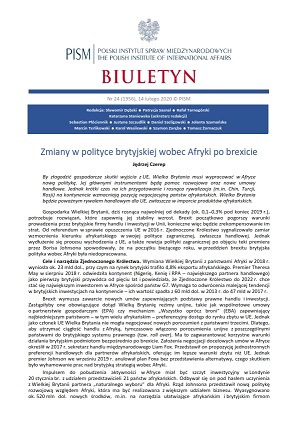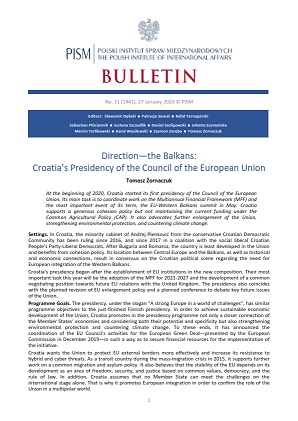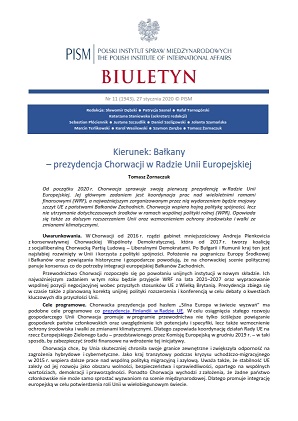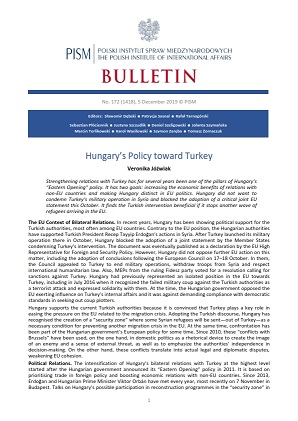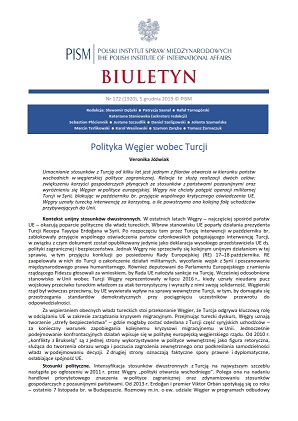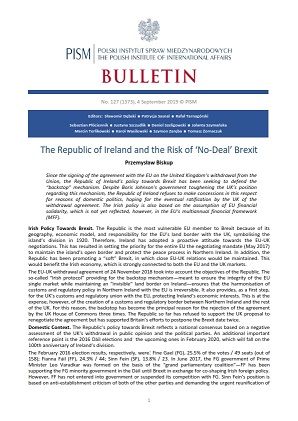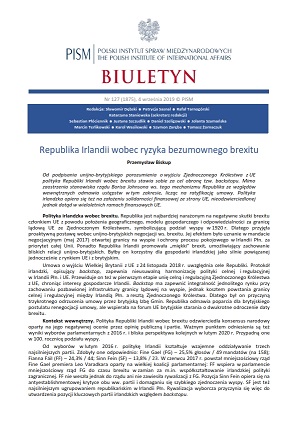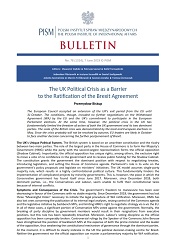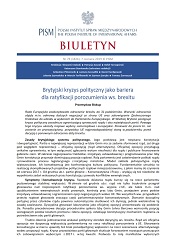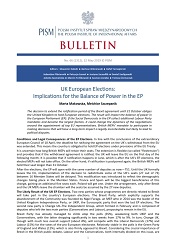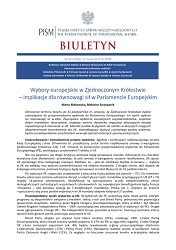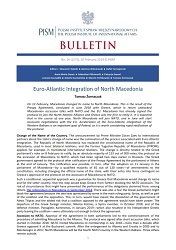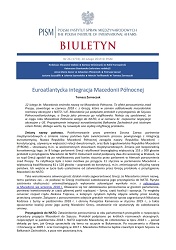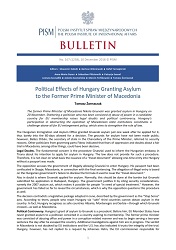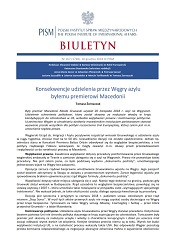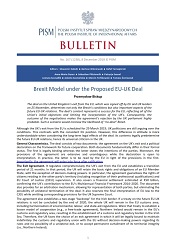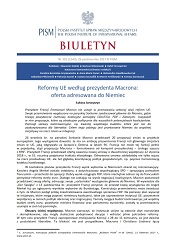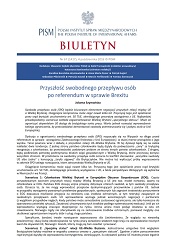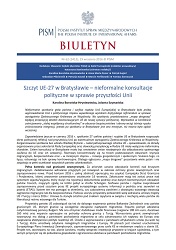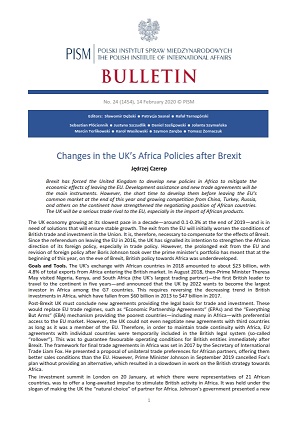
Changes in the UK’s Africa Policies after Brexit
Brexit has forced the United Kingdom to develop new policies in Africa to mitigate the economic effects of leaving the EU. Development assistance and new trade agreements will be the main instruments. However, the short time to develop them before leaving the EU’s common market at the end of this year and growing competition from China, Turkey, Russia, and others on the continent have strengthened the negotiating position of African countries. The UK will be a serious trade rival to the EU, especially in the import of African products.
More...
